“I feel like we don’t have to demolish everything to create something new. This is especially true for today’s music. It would be important for people to realize we don’t have to close one door to open another."
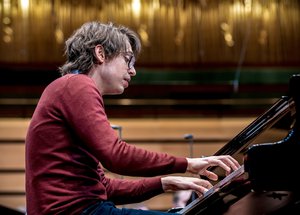
In relation to the performance of Lucas Debargue, Gábor Takács-Nagy and Concerto Budapest on 21st of January, in MÜPA, the soloist said the following:
“The last time I played with Concerto Budapest was three years ago, we performed Prokofiev's Second, conducted by András Keller, which was a huge experience. I haven't worked with Gábor Takács-Nagy yet but of course, I've heard several concerts with the chamber orchestra of the Verbier Festival, and the recordings of the Takács Quartet are not unknown to me either. The energy and passion that flow from it are very inspiring. His enthusiasm catches on to all of us, and since I’m a similar type, I feel like an extremely uplifting concert awaits us.”
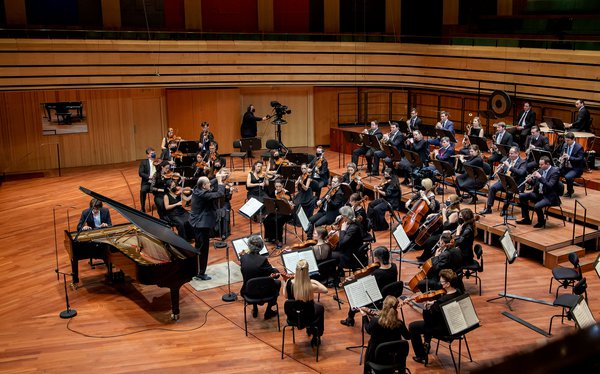
The concert in MÜPA with Lucas Debargue, Gábor Takács-Nagy and Concerto Budapest, photo: Andrea Felvégi
“I feel like we don’t have to demolish everything to create something new. This is especially true for today’s music. It would be important for people to realize we don’t have to close one door to open another.
Our whole world would be different if we understood that. Bach and Mozart belong to everyone. I am convinced that if we had not forgotten this, there would not be so many question marks around equality now.
Today's concert audience is an extremely small, affluent, intellectual group, and the age group is moving more and more outwards. Yet classical music can get to anyone’s heart just as much as the more popular genres these days, rock, pop or jazz. I really like these genres, and it’s also of tremendous value to be able to pass on something important in three minutes.
Classical music obviously needs more time than that, in return, it can move people’s souls really deeply. My first encounter with classical music was when I was ten, as I come from a non-musical family. I didn't know anything about it until then, yet it touched me deeply. That’s why I’d be happy if there were a lot of people sitting in the audience who are now discovering this work, because for music to affect us, you don’t need any background knowledge, just in-depth attention.
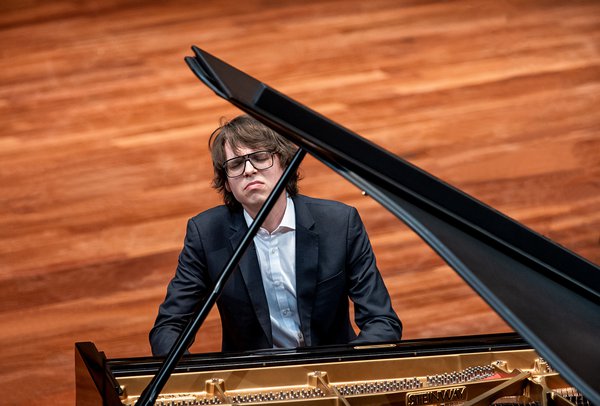
Lucas Debargue, photo: Andrea Felvégi
The concert in MÜPA with Lucas Debargues and Gábor Takács-Nagy, photo: Andrea FelvégiMany listen to classical music to fall asleep. It’s a nice thing if music can give you peace of mind, but I feel like we need to stay awake. Classical music helps you get into the deeper layers of the soul, focus, meditate, but not sleep. I'd rather wake up. In a spiritual sense. This is what I consider to be my profession. To make people feel better by discovering music and filling the inner emptiness.
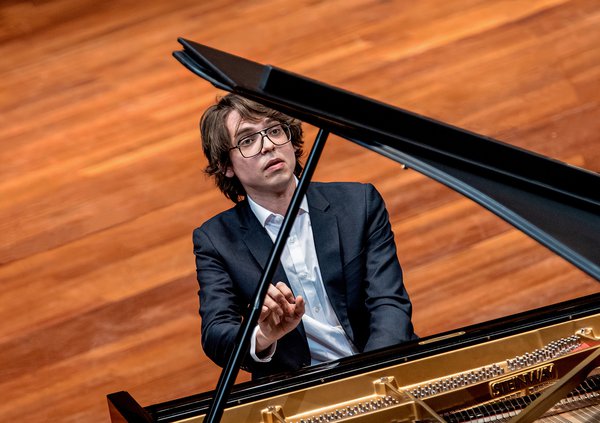
Lucas Debargue, photo: Andrea Felvégi
Lucas Debargue, photo: Andrea Felvégi
In my opinion, every concert should be special and unique, not only for the audience but also for the artists. To do this, we must be completely sincere in body and soul, for art is the embodiment of truth. A musician, an actor, or a dancer uses his body to convey art. We need to remain honest so that the truth can flow through us, as two thousand people come into the room. These real emotions, which are there in the concert hall, are transformed by the artist into a musical experience through his own body. You will be given the opportunity to convey a message."
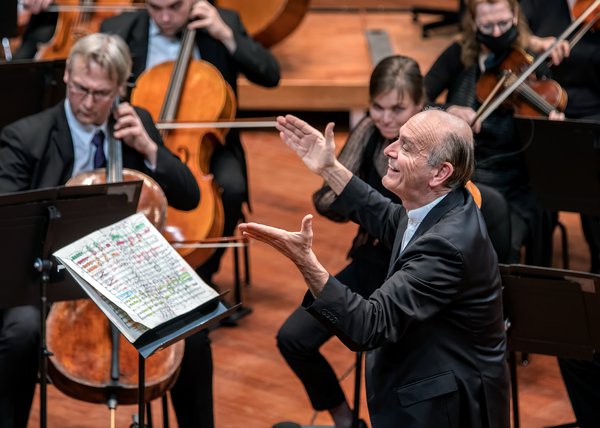
Takács-Nagy Gábor, photo: Andrea Felvégi
The original interview in Hungarian was published on Papageno.hu
The English extraction of the interview was published on Lucas Debargue's Facebook page
